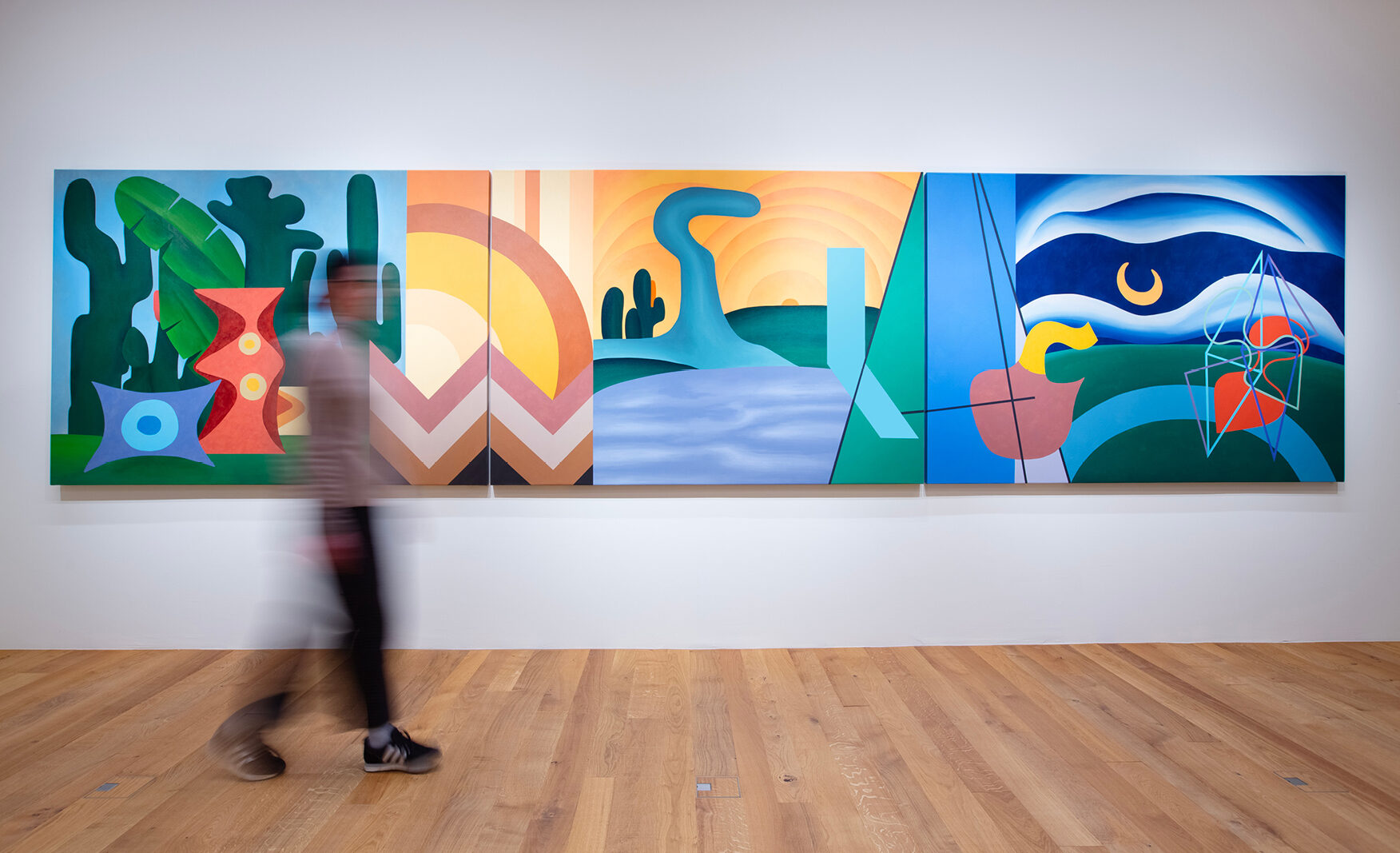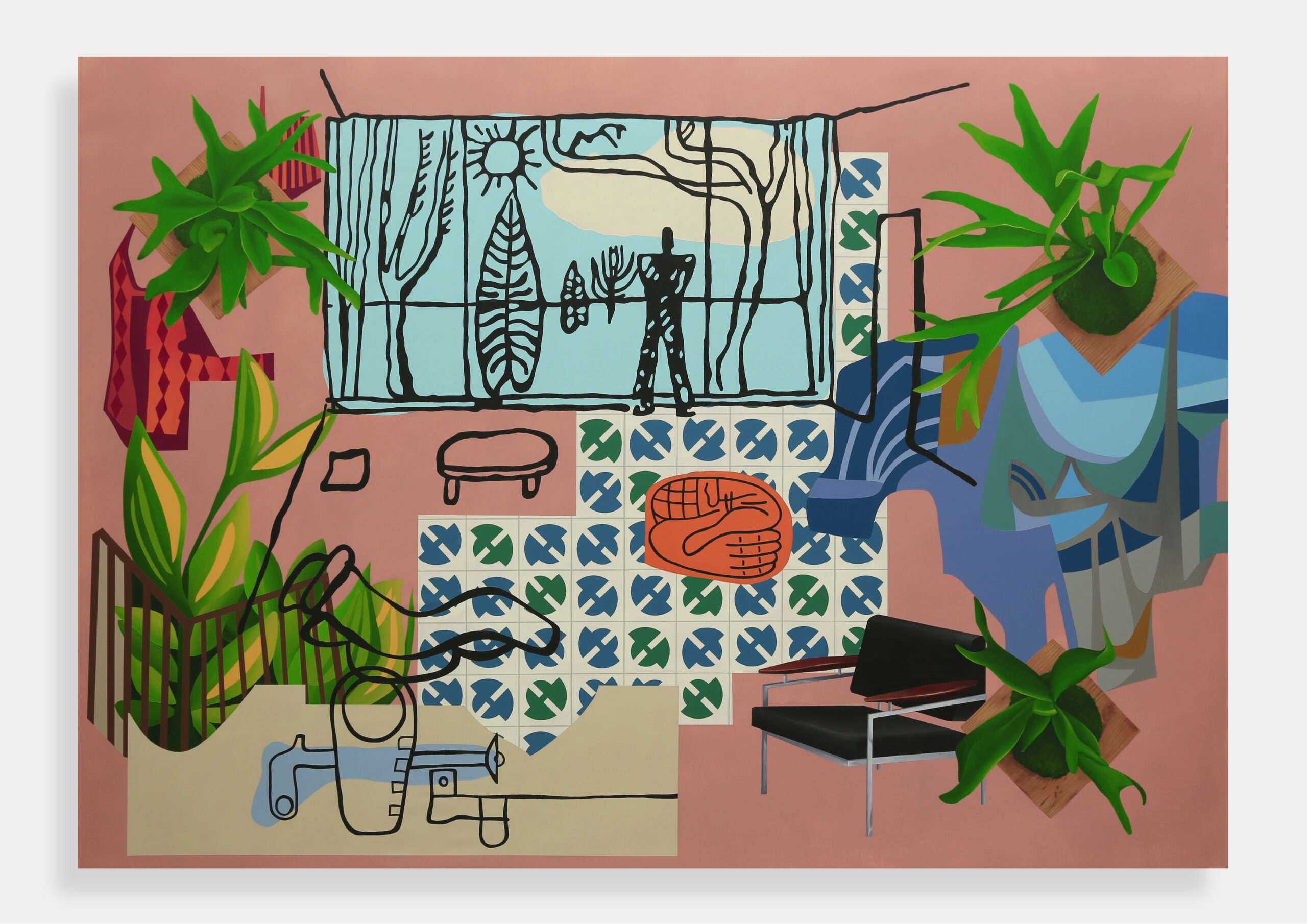Land of the future – Weird agenda 2021 – Acrylic on canvas – 120 x 170 cm
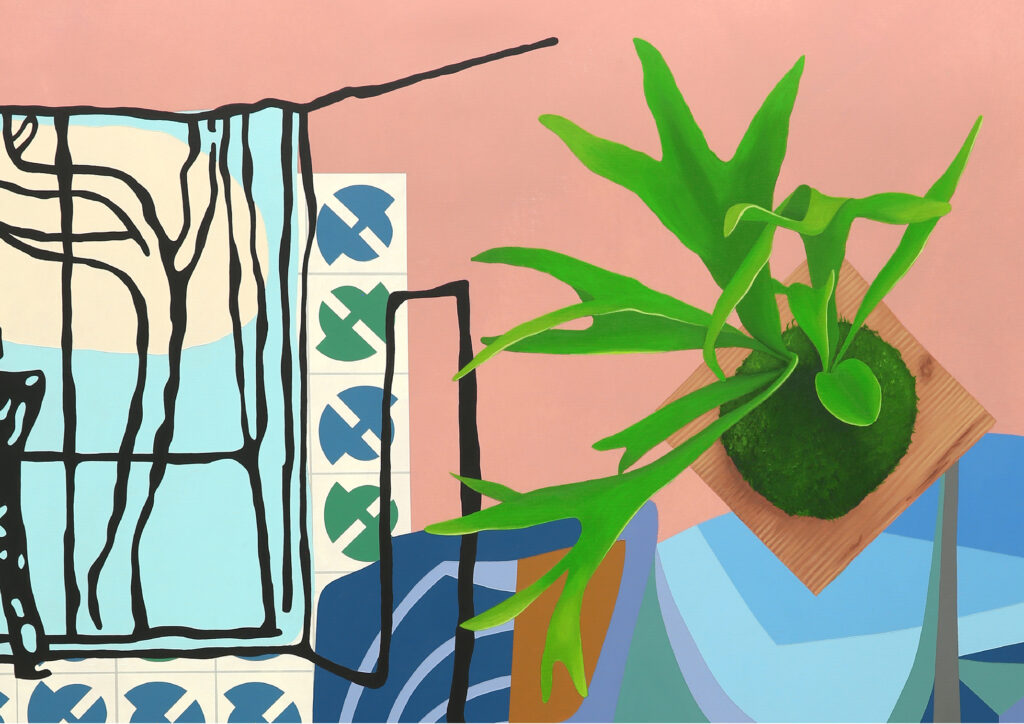
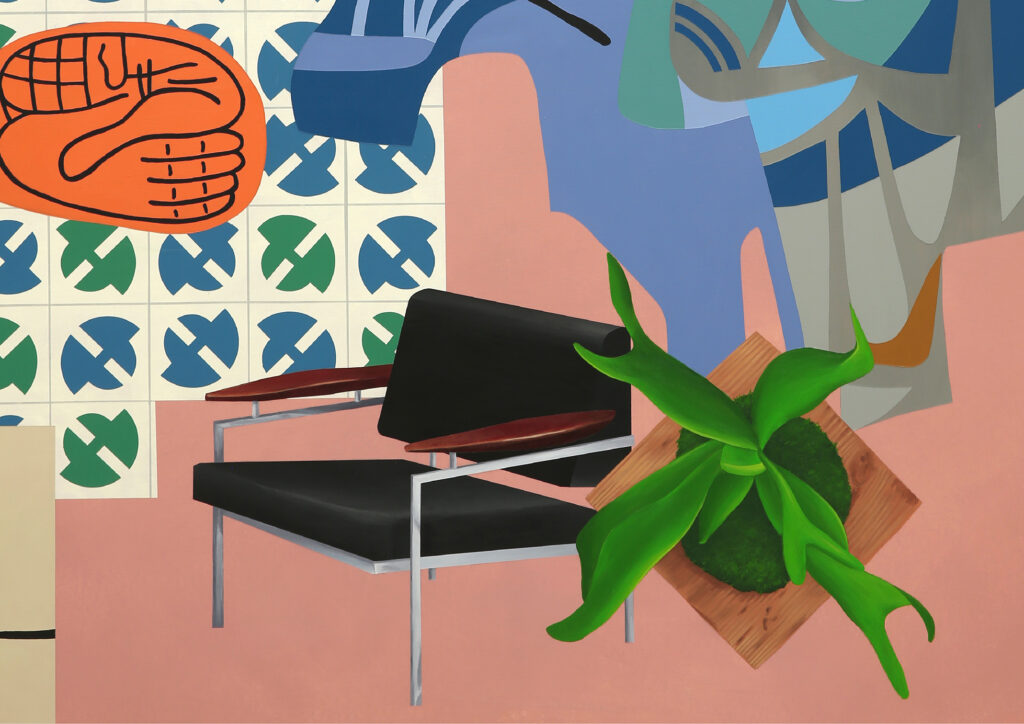
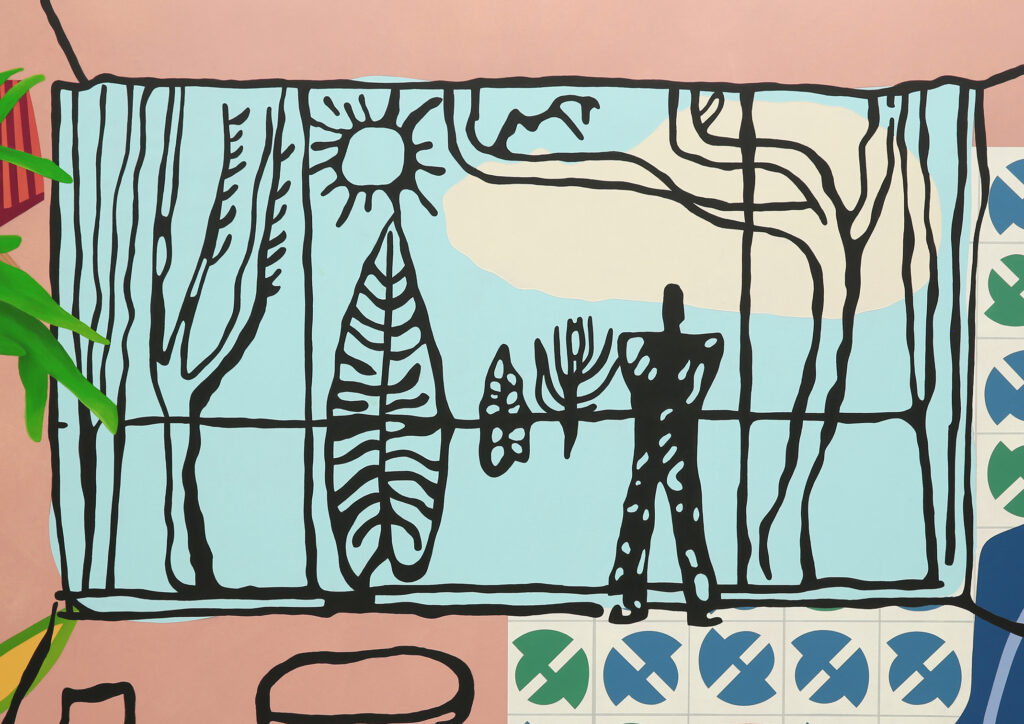
In the week of July 20, 2021, these were the headlines:
Off the agenda, Bolsonaro received deputy leader of the German ultra-right – Folha de São Paulo
The president secretly receives a Nazi deputy – Uol
Bolsonaro meets German deputy investigated for propagating neo-Nazi ideas – Istoé
Bolsonaro defends meeting with German ultra-right deputy – Deutsche Welle
The press reports the meeting of President Jair Bolsonaro with MP Beatrix von Storch, vice leader of the far-right German party AfD. Von Storch met Bolsonaro in his office at the Planalto Palace. The meeting was not on the official agenda of the presidency, but Beatrix posted a selfie on social media.
At the Palace, witness the actions of Bolsonaro, works by Di Cavalcanti, Athos Bulcão, furniture designed by Sérgio Rodrigues, the architecture of Niemeyer and the Corbusian spirit completing the set. The Planalto Palace, as well as the other buildings in the Plano Piloto, emerged within a post-war context in which architects and artists believed they could craft a social transformation.
In contrast, Jair Bolsonaro’s government broke off at all levels with the modernist utopia – which persists to this day as an example of the synthesis of the arts and humanism. If, on the one hand, it is clear that political authoritarianism remains in cycles, on the other hand, it is necessary to demonstrate the complete dissonance of the current government with an auspicious project for the future.
Land of the future
The book Brazil, Land of the future, published in 1941 by the Austrian author Stefan Zweig, is a travel guide. The work describes Brazil as an idyllic place with extraordinary civilizing potential.
Despite its sales success, the book was devious as the country was currently under a dictatorship. Nevertheless, Brazil, Land of the future became a national epithet. It was as a slogan widely explored by the government at the time. The new international aesthetics would conveniently match the government’s desire to promote the country’s progress and modernization.
A characteristic of the history of Brazilian culture in the 20th century is the appropriation of Modern avant-gardes by artists and the consequent consolidation of Modernist Brazilianness as one of the foundations of national identity.
With the series Land of the future, I aim to contrast the Modern project in Brazil – its promises of the future and its relationship with politics – with the present context.
